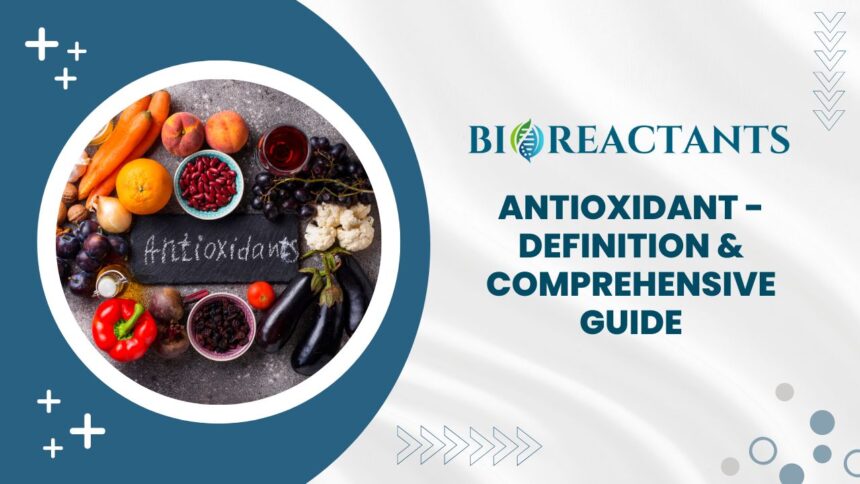Ready to discover the powerful world of antioxidants and how they can supercharge your health? Buckle up as we dive into everything you need to know about these mighty molecules that fight off the bad guys in your body and keep you feeling fantastic!
What are antioxidants?
Antioxidants are like the superheroes of your body, swooping in to protect your cells from damage caused by harmful molecules called free radicals. These troublemakers can wreak havoc and speed up aging, but antioxidants come to the rescue by neutralizing them. Think of antioxidants as your personal army, working tirelessly to keep you healthy and vibrant.
You can find antioxidants in a variety of foods, especially fruits, vegetables, nuts, and seeds. They come in different forms such as vitamins (like C and E), minerals (such as selenium), and other compounds like flavonoids and carotenoids. Each type plays a unique role in combating oxidative stress and supporting overall well-being.
So next time you dig into a colorful salad or enjoy a handful of berries, remember that you’re not just satisfying your taste buds – you’re also fueling your body with essential antioxidants that help it function at its best.
How do antioxidants work in the body?
Antioxidants work in the body by neutralizing free radicals, which are unstable molecules that can cause damage to cells. When our cells generate energy, they also produce these harmful free radicals as a byproduct. Too many free radicals can lead to oxidative stress, causing cellular damage and potentially contributing to chronic diseases.
By scavenging these free radicals, antioxidants help protect our cells from this oxidative damage. They essentially act as the body’s defense mechanism against harmful compounds that could otherwise wreak havoc on our health.
Different types of antioxidants target different kinds of free radicals and work together synergistically to maintain balance in the body.
Including a variety of antioxidant-rich foods in your diet helps ensure that you have a diverse range of antioxidants working together to support your overall health and well-being.
Why are antioxidants important for health?
Antioxidants are crucial for health because they help neutralize harmful molecules called free radicals in the body. These free radicals can damage cells and contribute to various diseases. By scavenging these free radicals, antioxidants play a key role in protecting our bodies from oxidative stress.
Oxidative stress occurs when there is an imbalance between the production of free radicals and the body’s ability to counteract their harmful effects. This imbalance has been linked to chronic conditions such as heart disease, cancer, and neurodegenerative disorders. Antioxidants help mitigate this risk by combating oxidative stress and reducing inflammation.
Incorporating antioxidant-rich foods into your diet can boost your immune system, improve skin health, and enhance overall well-being. Berries, nuts, leafy greens, and colorful fruits are excellent sources of antioxidants that can support your body’s defense against aging and disease.
Maintaining a balanced intake of antioxidants through a varied diet is essential for promoting long-term health and vitality.
What are the health benefits of consuming antioxidant-rich foods?
Consuming antioxidant-rich foods is like giving your body a powerful shield against harmful free radicals. These compounds help neutralize oxidative stress, which can damage cells and lead to various health issues. By incorporating these foods into your diet, you’re not only supporting your immune system but also promoting overall well-being.
Antioxidants play a crucial role in reducing inflammation and lowering the risk of chronic diseases such as heart disease, cancer, and diabetes. They also support skin health by fighting off the effects of UV radiation and environmental pollutants. Additionally, antioxidants are known for their anti-aging properties, helping to maintain youthful skin and cognitive function as we age.
From vibrant berries to colorful vegetables like spinach and kale, there’s a wide array of antioxidant-rich foods to choose from. Including a variety of these nutrient-packed options in your meals can enhance your body’s defense mechanisms and keep you feeling energized and healthy.
Which foods have the highest antioxidant content?
When it comes to foods with the highest antioxidant content, berries are at the top of the list. Blueberries, strawberries, raspberries, and blackberries are rich in antioxidants like vitamin C and flavonoids. These little powerhouses pack a punch in fighting free radicals that can damage cells.
Dark leafy greens such as spinach, kale, and Swiss chard are also excellent sources of antioxidants like vitamins A, C, and K. Incorporating these nutrient-dense greens into your diet can help boost your body’s defense against oxidative stress.
Nuts and seeds like almonds, walnuts, chia seeds, and flaxseeds are loaded with antioxidants such as vitamin E and selenium. These crunchy snacks not only satisfy your hunger but also provide essential nutrients to support overall health.
Adding colorful fruits like oranges, grapes, and kiwi to your daily intake can increase your antioxidant consumption. Citrus fruits are packed with vitamin C while grapes contain resveratrol known for its potent antioxidant properties.
What role do vitamins and minerals play as antioxidants?
Vitamins and minerals play a crucial role as antioxidants in the body by neutralizing harmful free radicals that can damage cells and lead to various health issues. Vitamin C, for example, is known for its powerful antioxidant properties, helping to protect cells from oxidative stress.
Another essential antioxidant vitamin is E, which works to prevent oxidative damage in cell membranes. Selenium is a mineral that acts as an antioxidant enzyme cofactor, supporting the body’s natural defense system against oxidative stress.
These vitamins and minerals work synergistically with other antioxidants in the body to combat free radicals effectively. Incorporating a variety of nutrient-rich foods into your diet ensures you are getting a good balance of these vital antioxidants to support overall health and well-being.
Remember, each vitamin and mineral has its unique role in fighting off free radicals and promoting cellular health. By consuming a diverse range of antioxidant-rich foods, you can optimize your body’s defense mechanisms against oxidative damage naturally.
Are antioxidant supplements necessary?
Antioxidant supplements have become increasingly popular in recent years as people seek to optimize their health and well-being. While consuming antioxidants through natural sources like fruits and vegetables is ideal, some may wonder if supplements are necessary.
It’s important to note that a balanced diet rich in whole foods is typically sufficient to meet antioxidant needs. However, certain individuals with specific health conditions or dietary restrictions may benefit from supplementing their diet with antioxidants.
Before incorporating antioxidant supplements into your routine, it’s crucial to consult with a healthcare professional or a registered dietitian. They can provide personalized advice based on your individual needs and help determine if supplementation is appropriate for you.
Remember, moderation is key when it comes to antioxidants – more isn’t always better. Focus on consuming a variety of nutrient-dense foods to support overall health and well-being.
How can I measure the antioxidant content in foods?
Measuring the antioxidant content in foods can be a bit tricky, but there are ways to get an estimate of their levels. One common method is using the Oxygen Radical Absorbance Capacity (ORAC) assay, which measures how well a substance can neutralize free radicals. Another way is through Trolox Equivalent Antioxidant Capacity (TEAC), which compares the antioxidant capacity of different compounds to that of Trolox, a water-soluble analog of vitamin E.
Additionally, you can look at the Total Phenolic Content (TPC) of foods since phenolic compounds often have antioxidant properties. Keep in mind that these methods provide relative values and may not reflect how antioxidants function in your body. It’s essential to consume a variety of antioxidant-rich foods rather than fixating on exact measurements. Remember that balance and diversity are key when it comes to incorporating antioxidants into your diet!
What is oxidative stress, and how can antioxidants help prevent it?
Oxidative stress occurs when there is an imbalance between free radicals and antioxidants in the body. Free radicals are unstable molecules that can cause damage to cells and contribute to aging and various diseases. Antioxidants help neutralize these harmful molecules, reducing the risk of oxidative stress.
By scavenging free radicals, antioxidants protect cells from oxidative damage, preserving their function and integrity. This process plays a crucial role in maintaining overall health and well-being. Consuming antioxidant-rich foods can help combat oxidative stress by providing the body with a defense mechanism against harmful free radicals.
Incorporating a variety of fruits, vegetables, nuts, seeds, and whole grains into your diet can boost your antioxidant intake and support your body’s ability to prevent oxidative stress. Additionally, staying hydrated, getting enough sleep, managing stress levels, and avoiding excessive exposure to environmental toxins can also aid in reducing oxidative stress levels within the body.
What are primary or chain-breaking antioxidants?
Primary or chain-breaking antioxidants are molecules that play a crucial role in neutralizing free radicals within the body. These antioxidants work by donating electrons to unstable free radicals, thereby preventing them from causing damage to cells and tissues.
By interrupting the chain reaction of oxidative stress, primary antioxidants help protect against various chronic diseases and premature aging. Examples of primary antioxidants include vitamins C and E, beta-carotene, and selenium.
These powerful compounds can be found in a variety of foods such as fruits, vegetables, nuts, seeds, and whole grains. Including these antioxidant-rich foods in your diet can boost your body’s defense system against harmful free radicals.
Incorporating primary antioxidants into your daily meals is an excellent way to support overall health and well-being. By understanding the importance of these compounds in combating oxidative stress, you can take proactive steps towards maintaining a healthy lifestyle.
What are water-soluble antioxidants?
Water-soluble antioxidants are compounds that dissolve in water and help protect our cells from damage caused by free radicals. These antioxidants are essential for neutralizing harmful molecules in the body and preventing oxidative stress.
Common water-soluble antioxidants include vitamin C, which is found in citrus fruits, berries, and leafy greens. Vitamin C plays a crucial role in boosting the immune system and promoting healthy skin.
Another important water-soluble antioxidant is glutathione, known as the body’s master antioxidant. It helps detoxify the liver and supports overall cellular function.
Consuming a diet rich in water-soluble antioxidants can help reduce inflammation, lower the risk of chronic diseases, and promote overall well-being. Incorporating foods like bell peppers, kiwi, and broccoli into your meals can boost your intake of these beneficial compounds.
Remember to vary your sources of antioxidants to ensure you’re getting a wide range of nutrients to support your health.
What are fat-soluble antioxidants?
Fat-soluble antioxidants are compounds that dissolve in fat and are stored in the body’s fatty tissues. They play a crucial role in protecting cell membranes from oxidative damage by neutralizing free radicals. These antioxidants include vitamins A, D, E, and K, which are essential for overall health.
Vitamin E is a powerful fat-soluble antioxidant known for its ability to combat oxidative stress and reduce inflammation in the body. It helps maintain healthy skin, eyesight, and immune function. Vitamin A supports vision health and boosts the immune system, while vitamin D promotes calcium absorption and bone strength
Fat-soluble antioxidants can be found in foods like nuts, seeds, avocados, olive oil, and fatty fish. Including these foods in your diet can help increase your intake of these important nutrients to support your body’s defense against harmful free radicals.
Incorporating a variety of sources of fat-soluble antioxidants into your meals can contribute to overall well-being by promoting cellular health and reducing the risk of chronic diseases associated with inflammation and oxidative stress.
Which fruits and vegetables are rich in antioxidants?
When it comes to antioxidants, nature has provided us with a wide array of fruits and vegetables that are packed with these powerful compounds. Berries like blueberries, strawberries, and raspberries are known for their high antioxidant content. Not only do they taste delicious but they also offer numerous health benefits.
Citrus fruits such as oranges, lemons, and grapefruits are not only refreshing but also rich in vitamin C, a potent antioxidant that helps boost the immune system and fight off free radicals in the body. Leafy greens like spinach, kale, and broccoli are excellent sources of antioxidants like vitamins A, C, and K.
Other antioxidant-rich options include sweet potatoes, artichokes, beets, and red bell peppers. By incorporating a variety of colorful fruits and vegetables into your diet on a daily basis, you can ensure that you’re getting a good dose of antioxidants to support your overall health.
What are some common sources of vitamin E, beta carotene, and selenium?
Vitamin E, beta carotene, and selenium are essential antioxidants that play a crucial role in maintaining overall health and well-being. Sources of vitamin E include almonds, sunflower seeds, and spinach – all delicious options to incorporate into your daily meals.
Beta carotene is found abundantly in carrots, sweet potatoes, and kale – vibrant foods that not only add color to your plate but also provide a range of health benefits.
Selenium can be sourced from foods like Brazil nuts, seafood, and whole grains. By including these selenium-rich foods in your diet regularly, you can support your immune system and protect against oxidative stress.
Whether through a simple salad with mixed nuts or a colorful stir-fry with an array of vegetables rich in beta carotene – getting these antioxidants from natural food sources is the best way to ensure optimal health for years to come.
How can antioxidants contribute to preventing chronic diseases?
Antioxidants play a crucial role in preventing chronic diseases by neutralizing free radicals that can cause cellular damage. These harmful molecules are linked to various health conditions, such as cancer, heart disease, and Alzheimer’s. By combating oxidative stress in the body, antioxidants help reduce inflammation and protect cells from harm.
Consuming a diet rich in antioxidant-packed foods like fruits, vegetables, nuts, and seeds can boost your body’s defense against chronic illnesses. Vitamins C and E, beta carotene, selenium, and other micronutrients act as powerful antioxidants that work together to maintain overall health.
Incorporating colorful berries like blueberries and strawberries into your daily meals or snacking on nuts high in vitamin E content can significantly contribute to reducing the risk of developing long-term health issues. By including a variety of antioxidant-rich foods in your diet consistently, you are taking proactive steps towards safeguarding your well-being for years to come.
Conclusion
Incorporating antioxidant-rich foods into your diet can have numerous health benefits, from reducing the risk of chronic diseases to protecting your cells from damage caused by oxidative stress. By consuming a variety of fruits, vegetables, nuts, seeds, and other nutrient-dense foods rich in antioxidants like vitamins E and C, beta carotene, and selenium, you can support your overall well-being.
Remember that antioxidants play a crucial role in neutralizing harmful free radicals and preventing oxidative damage in the body. While supplements are available on the market, it’s always best to focus on obtaining these essential nutrients through a balanced diet for optimal health benefits.
Make sure to include a colorful array of antioxidant-packed foods in your meals daily to boost your immune system, promote healthy aging, and safeguard against various illnesses. Prioritize incorporating these powerful compounds into your lifestyle for long-term wellness and vitality.




